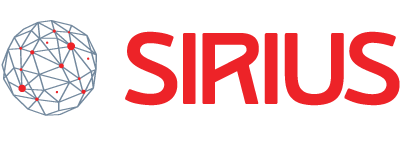Ahus Surgical Unit ODBA
Health data silos arise when healthcare institutions collect and store only data generated from their own patients, with limited or no possibility to either share data or access valuable knowledge from other parts of their own institution, similar institutions or organizations. Data silos also occur within organizations when data is produced by different tools or stored in databases that are not networked.
Laborious data retrieval and review activities can be automated and simplified, and health professionals can have easier access to literature and unstructured data. SIRIUS is addressing research related to search in medical linked data and friendlier user interfaces to medical information systems. Semantic data integration has been demonstrated as a tool that allows automatic filling out of pre-operative forms.
HealthInsight
HealthInsight explored the many challenges to address before big data can deliver major insights to the healthcare sector. One of the barriers is that there is a lack of strong incentives or champions of data reuse within clinical groups or in the hospitals, and data continues to be regarded by many as a “waste product” of the system. Another barrier is a lack of interoperability and fragmentation of data/information systems. There are security and privacy concerns that need to be considered as well. A further barrier to innovative re-use of healthcare data is due to the limited number of existing solutions that exchange datasets, and lack of standards. Innovative ideas will naturally come to light after initial systems are built to demonstrate how datasets will realistically be integrated, to give end-users knowledge of size/quality of datasets, and to allow searching/extraction of usable subsets of data.
Real World Data
In the data driven future of precision medicine, real world data is a resource for decision support when deciding on treatment for both the current and future patients. Real world data is also helpful for creating new knowledge, improving processes and assuring quality of clinical practice.
SIRIUS has an extensive track record of real-world development and deployment of OBDI, including installation and federation of relational data. The main cost when applying OBDI is the construction of the mappings between the ontology and the underlying data sources26. We have explored automatic and semi-automatic generation of mappings between health data sources and the target models.
The OTTR template framework was applied to health registry data as an exploration into ODBI and real-world data. OTTR was proposed to support an efficient pattern-based approach to ontology development and maintenance.
Research from domain-adapted data science was explored in relation to health real-world data. SIRIUS has proposed parsing texts and augmenting the parse trees of sentences by adding to these graphs named entities, relations between entities and further information obtained from domain experts in the form of annotations. Initial work has outlined how graph neural networks can be applied so that named entity recognition and linking, relation extraction, semantic role labelling, and event extraction can be realized based on the rich graph-based representation.
Convincing healthcare professionals to trust machine-generated insights and recommendations can be a challenge. SIRIUS has proposed an application of xAI techniques to support clinical decision making and enhance user trust.
Evidence mapping (together with NTNU)
Currently, knowledge generated through clinical research follows an unappealing timeline. Knowledge takes a long time before possibly influencing clinical practice many years after the original data was produced. To speed up this process, SIRIUS outlines ways to structure existing clinical study data, integrate structured and unstructured data, and automate the process of knowledge building in the form of evidence mapping. In addition, integrating real time data from the clinic has been proposed to allow for faster uptake of real-world data.


